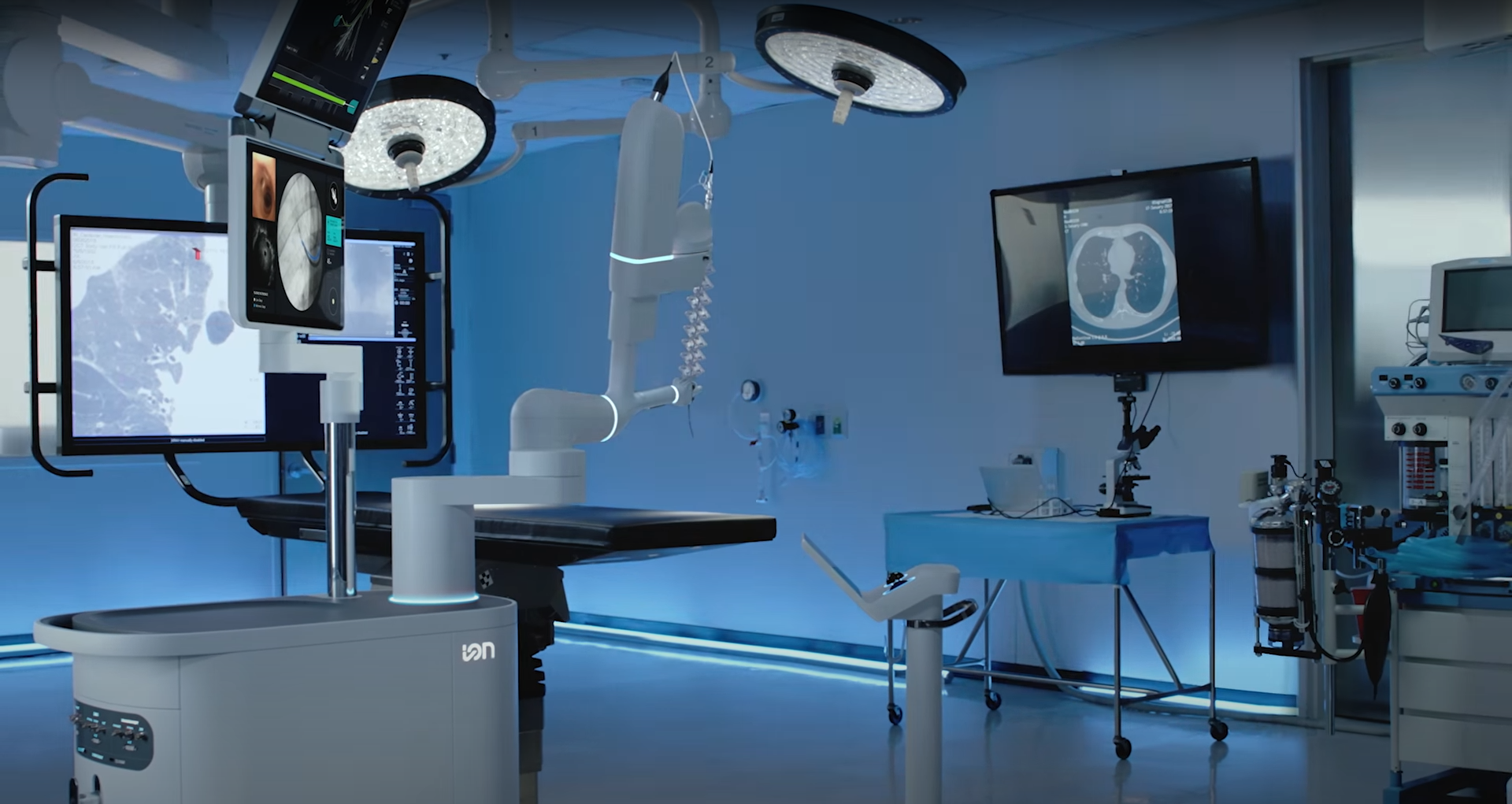Robotic bronchoscopy ion is a minimally invasive procedure that uses a robotic arm to guide a bronchoscope into the lungs. The bronchoscope is a thin, flexible tube with a camera and light on the end. It is used to look inside the airways and lungs.
Robotic bronchoscopy ion is used to diagnose and treat a variety of lung conditions, including:
- Lung cancer
- Tuberculosis
- Chronic obstructive pulmonary disease (COPD)
- Interstitial lung disease
- Asthma
Robotic bronchoscopy ion is a safe and effective procedure. It is less invasive than traditional surgery, and it has a shorter recovery time.
Here is a video of robotic bronchoscopy ion:
Benefits of Robotic Bronchoscopy Ion
- Less invasive than traditional surgery
- Shorter recovery time
- Improved accuracy and precision
- Increased safety
- Reduced risk of complications
How Robotic Bronchoscopy Ion Works
Robotic bronchoscopy ion is performed under general anesthesia. The patient is asleep and pain-free during the procedure.
The interventional pulmonologist uses a robotic arm to guide the bronchoscope into the lungs. The camera on the end of the bronchoscope allows the interventional pulmonologist to see inside the airways and lungs.
The interventional pulmonologist can use the robotic arm to perform a variety of procedures, including:
- Taking tissue samples (biopsies)
- Removing foreign objects
- Instilling medication
- Treating bleeding
Risks of Robotic Bronchoscopy Ion
As with any medical procedure, there are some risks associated with robotic bronchoscopy ion. These risks include:
- Bleeding
- Infection
- Pneumothorax (collapsed lung)
- Reaction to anesthesia
Recovery from Robotic Bronchoscopy Ion
The recovery time from robotic bronchoscopy ion is typically short. Most patients are able to go home the same day as the procedure.
You may experience some mild side effects, such as:
- Sore throat
- Cough
- Fever
- Pain at the injection site
These side effects should go away within a few days.
If you have any questions about robotic bronchoscopy ion, please talk to Dr. Imtiaz Ahmad at 239-437-6670.

